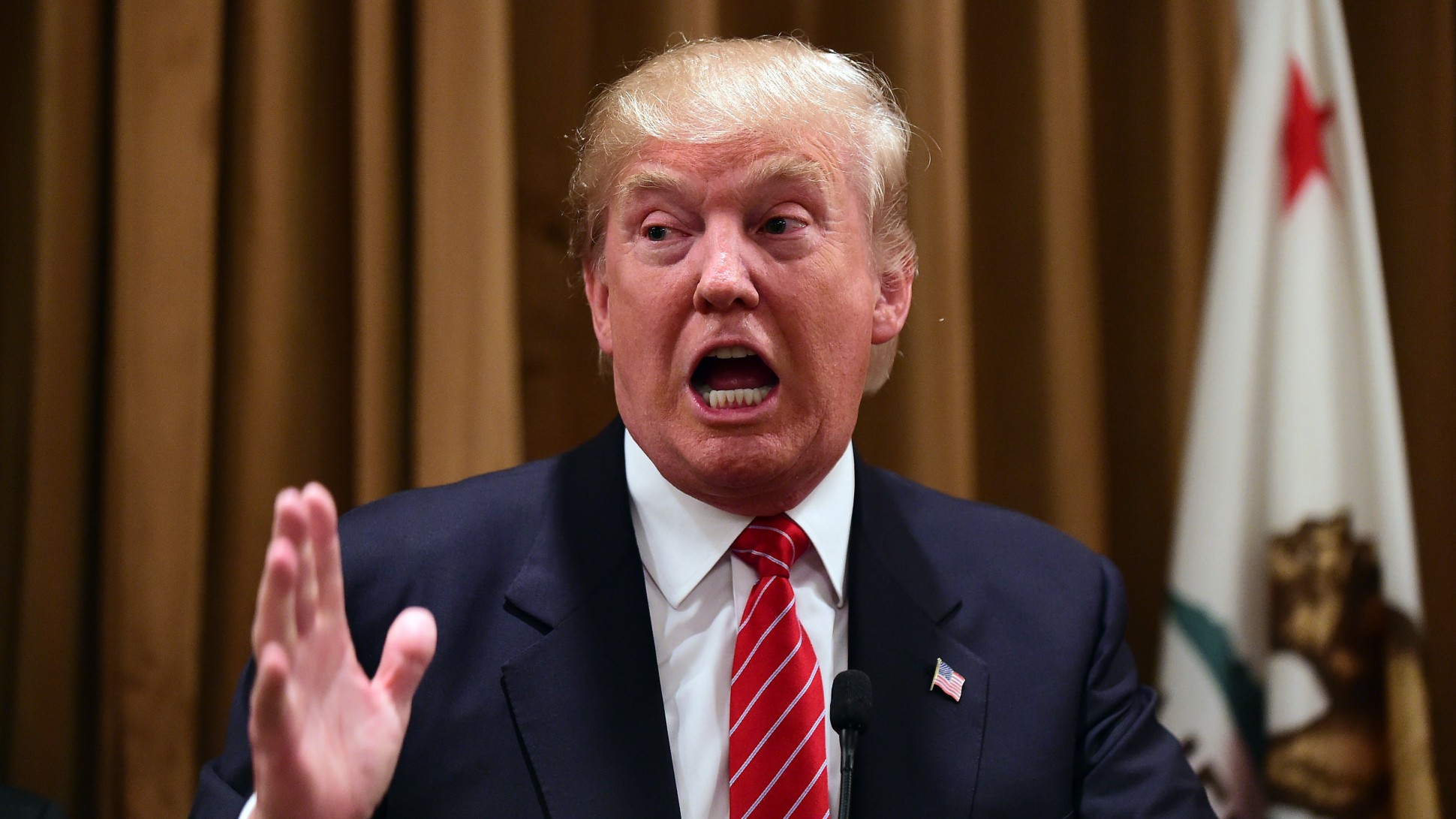Donald Trump has dominated the 2016 US presidential campaign thus far. He has been making headlines ever since the announcement of his presidential campaign almost a year ago in June 2015. According to the most recent national polling averages out of FiveThirtyEight, Trump is leading the Republican nomination race at 39.1 per cent (beating his nearest competitor Senator Ted Cruz by 16 per cent). Many are perplexed, however, by his swift ascent to dominate the polls—when Trump announced his candidacy, he was polling at 3.5 per cent. But it turns out that science has a lot to offer to explain the appeal behind ‘The Donald.’
For many who support Trump, they will tell you he’s unlike any other candidate because he speaks his mind without care for political correctness or censorship.
“Donald is funny, playful, and colourful, but most of all, he is honest,” actor Jon Voigt explained in an endorsement statement. “No frills, no fuss, only candid truths.”
Many Trump supporters find his unfiltered speech refreshing because it goes against the mould of the calculated, edited, proofread politician. For many of his supporters it’s not that they necessarily agree with what he says, but how he says it.
“Yeah, he’s batsh*t crazy; if he wins, it will be nuts [but] I genuinely believe he’s the only honest politician running,” One Redditor posted.
Trump has garnered a reputation as an honest candidate, despite Politifact—a Pulitzer-prize winning political fact checker—ranking 78 per cent of his statements as mostly false, false, or completely false.
Part of the reason for Trump’s perceived honest persona may be because of the many non-normative, non-self-serving statements he’s made on the campaign trail. For example, Trump famously said, about former GOP presidential candidate John McCain, “I like people who weren’t captured.” Though his disrespectful statement on McCain was unlikely to win him much sympathy, it did reinforce his commitment to his unfiltered opinions. Trump has said plenty of cruel and rude statements throughout his campaign; but since many of them have not been self-serving or standard political fodder, the things he says seem to be more authentic because, why else would he be saying them?
Trump’s word patterns also help create an apparent authenticity. For example, unlike many of his political counterparts, Trump rarely speaks in full sentences.
“[Trump’s] unique rhetorical style may come off as incoherent and unintelligible when we compare it with the organized structure of other candidates’ answers,” Jennifer Sclafani, Georgetown University linguist told Live Science. “On the other hand, his conversational style may also help construct an identity for him as authentic, relatable, and trustworthy, which are qualities that voters look for in a presidential candidate.”
Trump uses simple words and phrases in his speeches, often repeating them in order to hammer down the point. He tends to avoid political jargon. For example, in discussing illegal immigration, he rarely uses the words “immigration” or “deportation” in his speech. Instead, he will use parallel phrases like “come in” and “come out.” Framing the illegal immigration issue in simple black-and-white terms is another tactic Trump employs in his speeches, which he generally uses to lessen uncertainty on any particular issue.
Avoiding shades of gray is a useful political maneuver in the Republican Party, with many conservatives ranking highly in ambiguity (or uncertainty) intolerance. Psychological research has shown that individuals who feel uneasy, uncertain, or anxious are significantly more likely to be politically conservative. In using unambiguous language, Trump speaks suitably to politically conservative voters.
Much of Trump’s unambiguous speech has centered on violence and fear. Things like fear of terrorist attacks and illegal immigrants who are dangerous rapists has propelled Trump to many media headlines. Like many of the themes present in Trump’s campaign, fear stimulates a very primal instinct. By launching the fight-or-flight response in the brain’s amygdala, fear and anxiety make it difficult for our body to process higher-level thinking. In utilizing and focusing on fear, Trump makes it very difficult to pay attention to anything else.
When Senator Marco Rubio suspended his presidential campaign, he warned Americans not to “give into the fear,” highlighting Trump’s tactic of fear-mongering. Fear-mongering is nothing new to politicians, yet it is important to be cognizant of the word choice Trump uses in his campaign.
“I think we also have to look at the rhetoric coming from [Trump] in the presidential campaign,” Rubio said, “Leaders cannot say whatever they want, because words have consequences. They lead to actions that others take. And when the person you’re supporting for president is going around saying things like, ‘Go ahead and slap them around, I’ll pay your legal fees,’ what do you think is going to happen next?”
Check out this week’s Minds & Matters podcast that discusses this very topic at mcgilltribune.com/scitech
[audiotrack title=”Minds and Matters EP. 2: When SSMU is confronted with “external” and “divisive” issues” songwriter=”Chloe Nevitt and Lydia Kaprelian” date=”March 21, 2016″ width=”700″ height=”200″ src=”https://24f2041bb5b609d25f1a97039f71682cc9154421.googledrive.com/host/0B9rQxTeDv2duM0FmSjBSYkZFS1k/TrumpMindsMatters.mp3″ autoplay=”on”]
Podcast: Play in new window | Download






